![]()
January 2012
This study updates and supplements the ITIC’s June 2011 study of the Muslim Brotherhood. It examines the Muslim Brotherhood in Egypt and other Arab countries in the wake of the past year’s regional uprisings. It deals with the nature of the movement in each country, its relations with the various regimes and evaluates its chances of exploiting regional unrest to its own ends. It also examines the Muslim Brotherhood’s branches in Western European countries and the implications of its activity for both internal European affairs and the Palestinian-Israeli conflict.
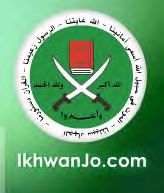
The emblem of the Muslim Brotherhood in Jordan. The inscription in the circle is the movement's motto: "Allah is our objective, the prophet (Muhammad) is our leader, the Qur'an is our law, jihad is our way and death for the sake of Allah is our most exalted aspiration."
Overview
The Muslim Brotherhood in Jordan, whose members are both trans-Jordanian and Palestinian in origin, is the main opposition in the country, both in size and popular influence, and seriously challenges the Jordanian regime. Like the movements in other Arab countries, it considers social and economic issues as key to accumulating political clout and expanding its influence among the masses. Since 1992 it operates as a political movement through the Islamic Action Front (IAF), which has representation in parliament.
The Muslim Brotherhood in Jordan is considered a legitimate opposition to the Hashemite regime. At various times, especially in the 1950s and 60s, it had close ties with the regime and was a faithful support in its struggle against the subversive activities carried out by the Nasserites and the national secular leftists. Later there were ups and downs in the relations between the movement and the regime. They worsened in recent years following the movement’s radicalization. It became highly critical of the regime on issues of foreign affairs, especially the peace with Israel, and fought any manifestation of normalization with Israel.
Today the movement Jordan is divided into two factions, extremists, most of whom are of Palestinian origin and support Hamas, and pragmatists, most of whom are Jordanian. The pragmatist faction acts as a brake on extremist trends, thus supporting the Jordanian regime. In recent years the extremists have been dominant, especially after Hammam Sa’id, who is of Palestinian origin, was chosen as inspector general, the highest post in the movement. After his appointment he expressed his support for Palestinian terrorism and called for the murder of Jews (See below).
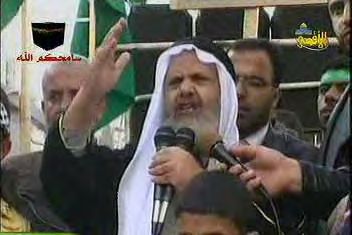
"...Kill them (the Jews) in Palestine! Throw them out of Palestine!" Hammam Sa'id, Muslim Brotherhood in Jordan inspector general, during a march held in solidarity with the residents of the Gaza Strip (Hamas' Al-Aqsa TV, December 5, 2008).
The Muslim Brotherhood in Jordan plays an important role in the protest against the Hashemite regime. So far the protest has been kept on the back burner and is mostly limited to Friday demonstrations, which are often attended by several thousand people. The movement is significant mainly in the capital city of Amman, and to a lesser degree in the northern part of the country (the county of Irbid). It functions as one of the many protest groups opposing the regime, among them leftists, Islamic groups which do not belong to the Muslim Brotherhood, liberals and pan-Arabists. In the south the Muslim Brotherhood joined protest groups composed of southern tribesmen.
At this point the Muslim Brotherhood and other protest groups demand an internal reform of the Hashemite regime. It does not call for the overthrow of the regime, rather it demands a parliamentary monarchy which would limit the power of the king and turn the government and the senate into elected, not appointed bodies.[19] The Muslim Brotherhood also demands economic and social reforms, such as maintaining low and subsidized prices. It is willing to give the current government, headed by Awn al-Khasawneh, a chance, and has still not decided whether or not to participate in the 2012 elections to local authorities and the parliament.
Milestones in the History of the Muslim Brotherhood in Jordan[20]
Unlike other Arab states, such as Egypt and Syria, the Muslim Brotherhood in Jordan is a legal opposition to the Hashemite regime. The Jordanian Muslim Brotherhood branch was founded in 1945 under the aegis of King Abdallah the First, and was based on the ideology of the Muslim Brotherhood in Egypt. In 1948, after the movement’s activities were banned in Egypt many of its members found asylum in Jordan. In 1954 more of its activists fled to Jordan, including some of the leaders. At that time the movement in Jordan focused on establishing religious, charitable, educational and welfare institutions (the da’wah), which to this day serve as the basis for its social and political influence.
When Abdallah annexed the West Bank in 1950 the movement was permitted to operate openly and was known as a legitimate, apolitical organization, operating through branch offices throughout the kingdom. However, that did not prevent it from criticizing the regime, its connections with Britain and what it considered its deviation from the principles of Islamic law (the Shari’ah) in daily life, often leading to the arrest of movement leaders. However, the common interests of the Muslim Brotherhood and the regime overcame the tensions and disagreements, and they coexisted with mutual respect and wariness.
During the 1950s the movement supported King Hussein in his struggle against leftist organizations and Nasserites, even during the attempted coup of 1957. In that same year, when King Hussein issued an edict banning political organizations in Jordan, no limitations were placed on the Muslim Brotherhood. In return, the movement supported the regime through the mosques and other public platforms. However, despite the close relations, the Hashemite government was wary of the Muslim Brotherhood’s strong anti-West, anti-Christian orientation and its long-term goal of establishing a Shari’ah-run Islamic state in Jordan. For that reason the movement was overseen by the Jordanian security forces and the regime defined the limits of its political freedom of action. However, it did not forcibly suppress it or completely eliminate it from political life.
In 1967, after the Six Day War, the movement’s branches in Judea and Samaria and the Gaza Strip were subordinated to the Muslim Brotherhood leadership in Jordan. In 1970, when the Jordanian army expelled the Palestinian terrorist organizations from the refugee camps in Amman and other Jordanian cities (the so-called “Black September” events), the Muslim Brotherhood supported King Hussein. It was rewarded with his support and received the education portfolio in the Jordanian government, thus being able to influence the values on which the younger generation as raised. The movement participated in elections for the first time in 1989, winning a surprising 30 of 80 seats in the house of representatives. After the victory at the polls, it announced that it did not intended to take over the Jordanian government. It stressed that it would operate solely in legal ways as part of the parliament and as a constructive opposition.
Its impressive victory in the 1989 elections and its popular support surprised King Hussein. However, his response was mild and he did not change his approach toward the movement. At the same time, however, the regime changed the electoral system, institutionalizing the kingdom’s political activity on parties. The result was a decrease in Islamic power, and in the next elections the Muslim Brotherhood won only 18 seats.
The crisis in the Persian Gulf led to a rapprochement between the regime and the Muslim Brotherhood. In January 1991, at height of the crisis, following the Iraqi invasion of Kuwait, five Muslim Brotherhood members were chosen as members of the Mudar Badran government[21]. The movement had a series of conditions for participating in the government, the main one of which was the government’s commitment to implement Islamic religious law in economics, education and the media. It also demanded government portfolios linked to ethical issues and norms, such as the ministries of education, justice and religious endowments (waqf). Eventually the Islamic bloc joined the government and its representatives received their five portfolios. After the Muslim Brotherhood joined, the Badran government won a large parliamentary majority and the movement was given freedom of action in areas it had never known before.
However, the issue of the Muslim Brotherhood’s inclusion in the government caused a deep ideological schism in the movement’s leadership (one of many), leading to the formation of two camps: one in opposition, which regarded participation in the government as harming the movement’s image as representing a radical, “clean” alternative to the regime. That camp claimed that by entering the government, the movement would grant Islamic legitimacy to a regime not founded on Shari’ah and might hurt its societal activities, which were central to its existence. The other camp was in favor of participation in government, regarding it as an opportunity to influence the running of the country. The final decision was to join the government. However, when the crisis in the Persian Gulf ended and preparations were made in 1991 for Madrid Conference, King Hussein appointed a new government and forced the Islamic block out because it had opposed Jordanian participation in the negotiations with Israel.
Following new legislation in Jordan and the passing of the political party law, on October 28, 1992, the Muslim Brotherhood in Jordan established a political wing, the Islamic Action Front.[22] The IAF has both movement and independent Islamist activists. It was primarily established to have political influence in dealing with the challenges the movement faced with regard to the parliamentary elections scheduled for November 1993. When the votes were counted, the Muslim Brotherhood had become the largest faction in the Jordanian parliament, and strongly opposed the peace treaty Jordan signed with Israel in 1994.
However, the establishment of the Islamic Action Front led to new tensions and rifts: traditionalists and conservatives vs. modernists, moderate vs. radical, and trans-Jordanians vs. Palestinians. Within the new party there were also tensions and frictions between independent Islamists and Muslim Brotherhood members. Thus the IAF did not develop into a political party which could stand on its own with a clear, well-defined ideology, an organizational hierarchy and network of local branches.
Between 2005 and 2006 the Muslim Brotherhood in Jordan became radicalized, which damaged its relations with the regime. In 2006 movement members expressed support for Hamas following the March affair of arms smuggling to the Gaza Strip through Jordanian territory. In June 2006 they even visited the mourning tent erected for Abu Mussa’b al-Zarqawi, senior Al-Qaeda representative in Iraq, who was killed in a targeted attack by an American plane, and openly lauded him. In response, the regime detained four Islamic Action Front members of parliament. In 2006, during the Second Lebanon War, the movement criticized the conduct of the regime and called for support of Hezbollah. In response, the regime took steps to restrain the movement’s activity and weaken its public status.
After its failure in the November 2007 parliamentary elections, the movement underwent an internal shakeup concerning the nature of its activities within the internal political system and how to deal with the Hashemite regime. It did some soul searching, at the end of which its governing body (the Shura Council) decided to disband itself three years before the next elections. The movement decided that its members of parliament would retain their positions but instructed the senior member who had been appointed to the senate to resign in protest of 2007 parliamentary election irregularities.
Before the November 2010 elections, the movement announced it would boycott them, as it did in 1997, claiming that they were not fair. In January 2011 the Islamic Action Front demanded that King Abdallah disperse the government and parliament because of the irregularities of the November 2010 parliamentary elections. The party secretary showed the media documents confirming forgeries and warned of corruption in Jordan which, he said, seriously threatened the country (Al-Quds Al-Arabi, January 18, 2011).
Al-Sabeel, the Official Muslim Brotherhood Newspaper
The Muslim Brotherhood’s newspaper Al-Sabeel was first published as a weekly in 1995 and gained great popularity. Its editorial policy represents the movement’s more extreme faction. In 2008 it lodged a request with the Jordanian authorities to publish daily. Authorization was delayed by the tension between the regime and the Muslim Brotherhood, but was finally granted at the end of the year.
In February 2009 it began appearing on a daily basis. Its editor-in-chief is Atef al-Julani (Al-Quds Al-Arabi, February 11, 2011). The paper publishes anti-Israeli, anti-Semitic propaganda (See below). The movement’s pragmatic faction launched a website called Al-Bosala.com.
The Muslim Brotherhood and Jordan’s Position on Israel
The Muslim Brotherhood in Jordan leads a blatantly anti-Israeli campaign and openly opposes the Israel-Jordan peace treaty, calls for it to be revoked and wages a campaign against normalizing relations with Israel. It voiced strong opposition to the 1991 Madrid Conference and withdrew its representatives from the government. The movement’s more extreme faction strived for closer relations with Hamas and support its use of violence and terrorism against Israel. One manifestation of the policy is the considerable involvement of the Muslim Brotherhood in Jordan in flotillas and convoys to the Gaza Strip (See below).
The Muslim Brotherhood’s opposition to all forms of compromise and peace with Israel is based on its fundamental ideology and on political-electoral considerations. Ideologically it rejects peace with Israel because peace would mean giving up part of the land of “Islamic Palestine,” which the movement regards as “sacred Muslim land” (waqf) which cannot be relinquished. Politically-electorally, one of the Muslim Brotherhood’s power bases in Jordan is the Palestinian population in the refugee camps, most of which is strongly opposed to any form of Israeli-Jordanian relations. However, the Muslim Brotherhood failed to keep the peace treaty from being signed or to prevent normalized relations between the two countries. To this day it focuses its struggles against the manifestations of normalization and on turning the clock back.
The Muslim Brotherhood in Jordan has supported Palestinian terrorism and has used its official newspaper to conduct a smear campaign against Israel and the Jewish people. An Islamist columnist, Ibrahim al-Aroush, affiliated Al-Qaeda, was responsible for the following in Al-Sabeel:
1) On January 15, 2008, he wrote an article denying the Holocaust. He wrote that the Holocaust was a “plot” invented to promote political goals. He said the UN resolution regarding the Holocaust was meaningless because around the world they would be “swept away like leaves in the wind.” He also voiced support for suicide bombing attacks against Israeli civilians.
2) On March 11, 2008, he wrote an article justifying the massacre of the students at Mercaz HaRav yeshiva in Jerusalem by a Palestinian saying that “Every Jew on the land of Palestine today is of necessity part of the Zionist program…It is sufficient that they are invaders…for our duty to be to uproot the last Jew, especially those so-called progressives…Blessings on the pure white hands, the hands of the heros of the resistance, which help [the Jews] on their way to hell…Well done, you who hold the rifles! Well done, you who have strapped on explosive belts!…”
Support for terrorism and the call to murder Jews were the themes in a speech given by Sheikh Hammad Sa’id, the inspector general of the Muslim Brotherhood in Jordan. He said the following, broadcast by Hamas’ Al-Aqsa TV on December 5, 2008:
1) He began by addressing the residents of the Gaza Strip, saying, “Blessed Gaza, raise your head, for you raise the head of [all] Muslims.” He then spoke of the events in Hebron, appealing to the residents of the city by saying, “You, Hebronites, are waging a war against the Jews, and you are experienced fighters. We saw you, how one day in 1929 [a reference to the indiscriminate slaughter of 67 Jews in Hebron, July 23-24, 1929] you massacred the Jews of Hebron. Today you have to massacre them on the soil of Hebron [again]. Kill them in Palestine! Throw them out of Palestine! [Do it] in defense of your Al-Aqsa [mosque], and of Nablus and Hebron.
2) He then addressed Mahmoud Abbas: “Abbas, remove your treacherous hands from the Palestinian people, never send the preventive security service to kill our brothers or confiscate our weapons…” He pointed the finger of guilt at the Palestinian Authority’s security forces, telling them to “oppose the [PA’s] preventive security service, do not fear them…you are lions.” To the Palestinians in the Gaza Strip he said, “Gaza, send rockets and end the lull [in the fighting], there must be no lulls with the enemy.”
3) He called for an end to relations between Israel and Jordan, saying, “Young people, tell the government of Jordan to throw the Israeli ambassador out of Amman, [because] Amman is pure and a Jewish ambassador cannot be allowed to defile it [with his presence]! [Tell the government] to recall the Jordanian ambassador from Palestine [i.e., Israel] to Amman. There must be only jihad fighters [mujahideen] in Palestine. [There cannot be] ambassadors, ministers or representatives of [the Islamic] nation. Do not recognize the [Israeli] ambassador. Palestine is jihad land and self-sacrifice.”
4) He also called on the Jordanians to put an end to normalized relations with Israel and to boycott its products, calling those who trade with Israel “collaborators” and “traitors,” adding, “the [Muslim] clerics have determined that anyone who trades with Jews is a traitor and collaborator.”

Left: The march (Al-Aqsa TV, December 5, 2008); Right: Hammam Sa'id, the inspector general of the Muslim Brotherhood in Jordan, during a march for solidarity with the Gaza Strip.
A recent example of the movement’s fundamental hatred for Israel and its rejection of any signs of normalized relations was an announcement issued by Hammam Sa’id, the Muslim Brotherhood in Jordan inspector general, in advance of a visit to Jordan of Israeli opposition leader Tzippi Livni. It denounced giving receptions to what he termed “war criminals” wanted in Jordan for the so-called “holocaust in the Gaza Strip,” and demanded that the Jordanian government prevent them from “tainting the soil of Jordan.” The announcement also denounced the reception of the “Zionist president” Shimon Peres in Amman and called for the end of normalized relations with Israel (Official Muslim Brotherhood website, December 1, 2011).
Ties between the Muslim Brotherhood in Jordan and the Hamas Movement
The issue of the relations between Hamas, the Palestinian branch of the Egyptian Muslim Brotherhood, and the Muslim Brotherhood in Jordan was a source of tensions between the movement members. Until recent years the movement in Jordan dealt mainly with internal Jordanian issues and was less openly supportive of Hamas. In the past the Muslim Brotherhood in Jordan made an effort to demonstrate its loyalty to the Jordanian regime even during disagreements over the question of Hamas activity in Jordan before its leadership was expelled and moved to Damascus. Before then the Muslim Brotherhood leadership demanded that Ibrahim Ghousheh, one of the deportees, stop reporting from Amman on Hamas activity, claim that “we are a law-abiding organization and loyal to the country,” and “we do not employ terrorism within our country.”
At the end of the 1990s the issue of the nature of the relations between the Muslim Brotherhood in Jordan and Hamas was raised within the Jordanian movement. Hamas gained its main support from the extremist faction, whose activists are of Palestinian origin. However, another Muslim Brotherhood in Jordan faction has an internal Jordanian agenda and supports Jordanian nationalism and reforms in the country’s political system. In the past the nature of the relations with Hamas caused a violent disagreement within the movement and high-ranking activists threatened to resign. Movement members tried to mediate between the sides by apparently to this day the situation is still controversial (Al-Quds Al-Arabi, September 17, 2009). Two senior figures, Hammam Sa’id and Zaki Bani Arshid belong to Hamas supporters of the extremist faction.
Senior Activists
Three senior Muslim Brotherhood in Jordan activists are the following:
1) Sheikh Hamman Sa’id, the Muslim Brotherhood in Jordan’s inspector general. Of Palestinian origin, elected to head the movement in May 2008, belongs to its extremist faction. Member of the Jordanian parliament in 1989. Holds a PhD in Islamic law (Shari’ah). Taught at the University of Jordan for many years. Holds extremist views regarding Israel, while having close relations with Hamas.
2) Zaki Bani Arshid, born 1957, head of the IAF political bureau. Of Jordanian origin, married, father of ten, holds a BA in chemical engineering. Joined the Muslim Brotherhood in 1973, later cofounded the IAF. Considered extremist and close to Hamas and Khaled Mashaal, head of Hamas’ political bureau.
3) Hamza Mansour, secretary general of the Islamic Action Front since 2006. Born 1944 in a village near Haifa. Preacher, holds an MA in education. Member of Jordanian parliament for three years.
Muslim Brotherhood in Jordan Participation in the Propaganda Displays against Israel
The Flotilla-Convoy Campaign
Muslim Brotherhood in Jordan activists are prominent in the flotilla-convoy campaign aimed at condemning and defaming Israel, support the de-facto Hamas administration in the Gaza Strip, and make it difficult for Israel to maintain its closure of Gaza. Muslim Brotherhood in Jordan participation in the Mavi Marmara flotilla was particularly prominent (May 31, 2010).
The Jordanian delegation to the flotilla was one of two large Arab groups. There were 31 Jordanian activists aboard the Mavi Marmara, including prominent public figures and trade union members. Many members of the delegation were affiliated with the Muslim Brotherhood, two in particular:
1) Wa’al Ikram Assad al-Saqa, who headed the Jordanian delegation aboard the Mavi Marmara. Born in 1956, engineer, veteran Muslim Brotherhood member, chairman of the Jordanian LifeLine Committee, which orchestrated the Jordanian participants in the flotillas and convoys. Heads the Jordanian engineers union, continues active participation in dispatching flotillas and convoys to the Gaza Strip.
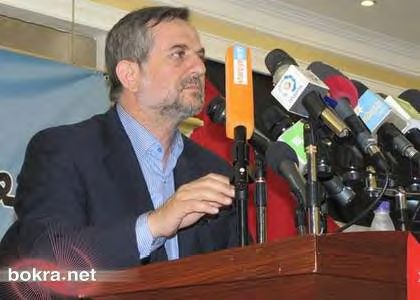
Wa'al al-Saqa at a press conference after his return to Jordan from the Mavi Marmara flotilla (Picture from the bokra.net website).
2) Professor Salem Yusuf Muhammad al-Falahat
A. Born 1954, Muslim Brotherhood activist, belongs to the movement’s more moderate faction, which does not prevent him from supporting Palestinian suicide bombing attacks against Israel. Was formerly inspector general of the Muslim Brotherhood in Jordan. In 1997 boycotted the parliamentary elections. Detained by Jordanian general intelligence in 2001 after participating in a unauthorized demonstration in support of the Palestinians. During the demonstration in Zarqa he called for suicide bombing attacks against Israel.
B. In June 2010 he said in an interview that the Muslim Brotherhood in Jordan, regarded Palestine as part of the Islamic Arab lands and could not be given up, rather, it had to be protected as a national and religious duty. The Muslim Brotherhood, he said, regarded the Hamas movement in in Palestine as leading the Islamic Arab liberation project, adding that the Muslim Brotherhood supported Hamas and all the Arab resistance [i.e., terrorist] movements in the region working for liberation (Al-Ra’i, Qatar, September 23, 2009, quoted by MEMRI, June 2, 2010).
C. In August 2011 al-Falahat denounced Jordanian security coordination with Israel, denounced Israel’s so-called “aggression” against the Palestinians, and called for young Arabs to support Al-Aqsa mosque. He also appealed to the Arab peoples in general to exert pressure on their various regimes to support the Palestinian people (Hamas’ Palestine-info website, August 28, 2011).
3) Saud Salim Abu Mahfuz Zarka (aka Habib al-Rahman), born 1959, newspaper correspondent, former Muslim Brotherhood faction member of Jordanian parliament. Belongs to the Muslim Brotherhood’s Islamic Action Party. General manager of the Muslim Brotherhood in Jordan’s daily Al-Sabeel. His son, who was a correspondent for Hamas’ Al-Aqsa TV in Jordan, was detained in Egypt in 2008 (Al-Jazeera TV, August 12, 2008).
The “Million Man March”
The Muslim Brotherhood in Jordan was prominent in organizing the so-called “million man march,” a propaganda event held on Friday, November 25, 2011, in the Jordan Valley north of the Dead Sea. It was an Islamic event whose objective was to emphasize the socalled “Islamic identity” of Jerusalem and protest the so-called “the Judaizing of Jerusalem.” The event was held around the anniversary of the UN General Assembly vote on the Partition Plan which established the State of Israel in 1947.
According to Al-Sabeel, the event’s organizers chose the site north of the Dead Sea because it was the closest location in Jordan that “looked out over Jordan” (Al-Sabeel, November 1, 2011). On November 25, 7,000 demonstrators gathered at the site, having arrived from various districts throughout Jordan. The event passed peacefully, there were no violent clashes and no attempt was made to march to the Israel-Jordan border.
Speeches were given by a number of important Muslim Brotherhood in Jordan figures, among them Hamman Sa’id, the movement’s inspector general. Various propaganda displays were held and the demonstrations held signs and shouted slogans such as “with spirit and blood we will redeem you, Al-Aqsa.” The event ended with the burning of Israel flags and models of Israel’s holy Second Temple (Agence France-Presse, November 25, 2011).
“Million Man March” Slogans
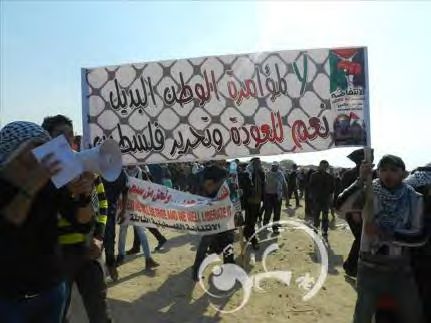
"NO to the plot of an alternative homeland, YES to the return (of the Palestinian refugees) and the liberation of Palestine" (Picture from the ammonnews.net website)
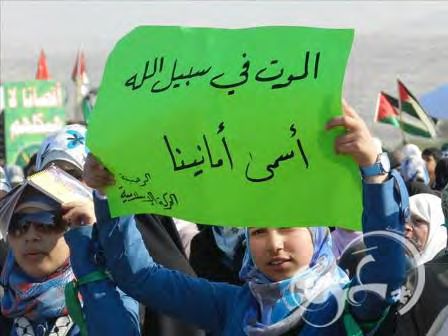
"Death for the sake of Allah is our most exalted aspiration" (part of the Muslim Brotherhood motto, which appears on the emblem of the Muslim Brotherhood in Jordan: "Allah is our objective, the prophet (Muhammad) is our leader, the Qur'an is our law, jihad is our way and death for the sake of Allah is our most exalted aspiration") (Picture from the ammonnews.net website).
![]()
Read the other sections here:
1. The Muslim Brotherhood in the Arab World and Islamic Communities in Western Europe: an overview
2. The Muslim Brotherhood in Egypt
3. The Muslim Brotherhood in Syria
4. The Muslim Brotherhood in Jordan
5. The Muslim Brotherhood in Algeria
6. The Muslim Brotherhood in Sudan
7. The Muslim Brotherhood in Saudi Arabia
8. The Muslim Brotherhood in The United Arab Emirates
9. The Muslim Brotherhood in Lebanon
10. The Muslim Brotherhood in Morocco
11. The Muslim Brotherhood in Tunisia
12. The Muslim Brotherhood in Europe
![]()
Notes:
[19] Al-Jazeera TV, February 28, 2011; Al-Ra’i, Qatar, November 29, 2011.
[20] In preparing this section we relied on sources which included an article by Issam Abu Riya entitled “The Hashemite Monarchy, the Muslim Brotherhood and Jordan’s Pseudo-Democratic System, 1989-1999” (Arabic) in Jamaiyah. Volume 2, 2003, pp. 11-38.
[21] Mudar Badran served as Jordan’s prime minister from 1976 to 1984 with a brief interruption from 1979 until 1980, and again from 1989 to 1991.
[22] Although the Islamic Action Front is the Muslim Brotherhood’s political wing, it is a separate entity and has independent institutions. Over the years there has been a continuous struggle between the two bodies, especially prompted by the attempts of the movement to intervene in elections to the IAF and to influence its policies.



 RSS
RSS

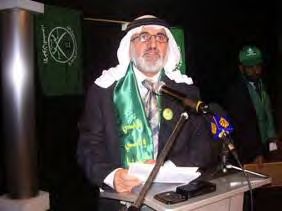
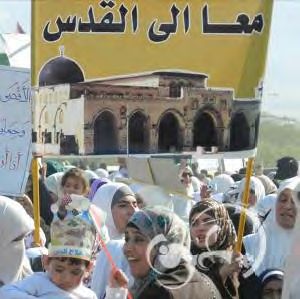

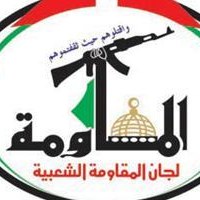
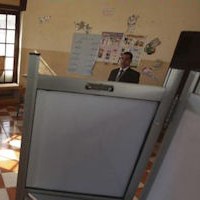
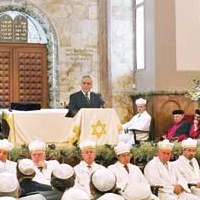
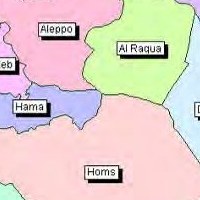




[…] 4. The Muslim Brotherhood in Jordan […]
[…] 4. The Muslim Brotherhood in Jordan […]
[…] 4. The Muslim Brotherhood in Jordan […]